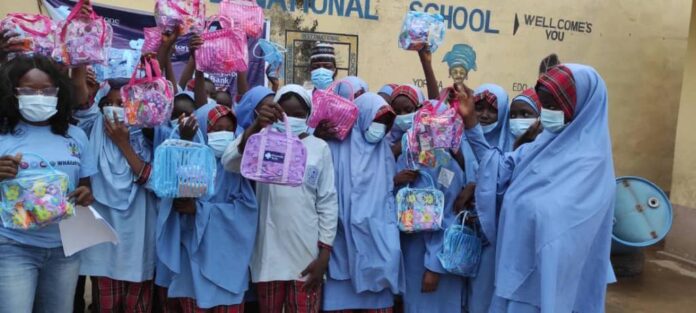The Joint United Nations Programme on HIV and AIDS (UNAIDS) has disclosed that Nigeria and 43 other nations didn’t sign a treaty seeking to make education free for all up to the secondary school level by 2025.
UNAIDS said only 10 nations out of 54 African countries adopted the decision, they are Benin, Cameroon, Eswatini, Gabon, Gambia, Lesotho, Malawi, Sierra Leone, South Africa and Uganda.
The initiative, Education Plus, is jointly led by UNAIDS, United Nations Educational, Scientific and Cultural Organisation (UNESCO), United Nations Population Fund (UNFPA), United Nations Children Fund (UNICEF) and the UN Women.
Education Plus is a high-profile, high-level political advocacy drive to accelerate actions and investments to prevent HIV, centred on empowering adolescent girls and young women and achieving gender equality in Sub-Saharan Africa — with secondary education as the strategic entry point.
The programme calls for free and quality secondary education for all girls and boys in Sub-Saharan Africa by 2025; universal access to comprehensive sexuality education; fulfilment of sexual and reproductive health and rights; freedom from gender-based and sexual violence; school-to-work transitions, and economic security and empowerment.
Though Nigeria offers free and compulsory education for children, the programme terminates at Basic Nine, three years before the end of secondary school.
At its launch during the Africa Union summit in Lusaka, Zambia, UNAIDS said the continent’s leaders in attendance pledged to support the initiative.
Speaking on the need for the initiative, UNAIDS said nearly 4200 adolescent girls and young women in sub-Saharan Africa acquire HIV weekly.
The agency said in 2020, six in seven adolescents aged between 15—19 years old acquiring HIV in the region were girls.
It added: “More than 23000 young women died from AIDS-related illnesses in 2020, making it the second leading cause of death among women aged 15—29 after maternal mortality in sub-Saharan Africa.
UNAIDS opined that keeping girls in secondary school and providing them with life skills, training, and employment opportunities is key to ending the AIDS pandemic in Africa.
Research shows that ensuring that girls complete secondary education reduces their risk of acquiring HIV to a minimum level and combining this with a package of services and rights for girls’ empowerment reduces their risk further still.
Recalled that the Academic Staff Union of Universities (ASUU) has been on strike since February 14 this year, students in public universities have been at home, as academic activities have been put on hold in the university sector.
Lecturers are demanding better welfare packages, more funds to run public universities, a stop to the indiscriminate setting up of new universities, the discontinuation of the use of the Integrated Personnel Payroll Information System (IPPIS) as the payment platform in the university system among others.
Despite series of meetings between the Nigerian government and the union, no tangible agreement has been reached.
Follow the Neptune Prime channel on WhatsApp: https://whatsapp.com/channel/0029Va74ZvU2v1IqKByXoX3d
Do you have breaking news, interview request, opinion, suggestion, or want your event covered? Email us at neptuneprime2233@gmail.com


